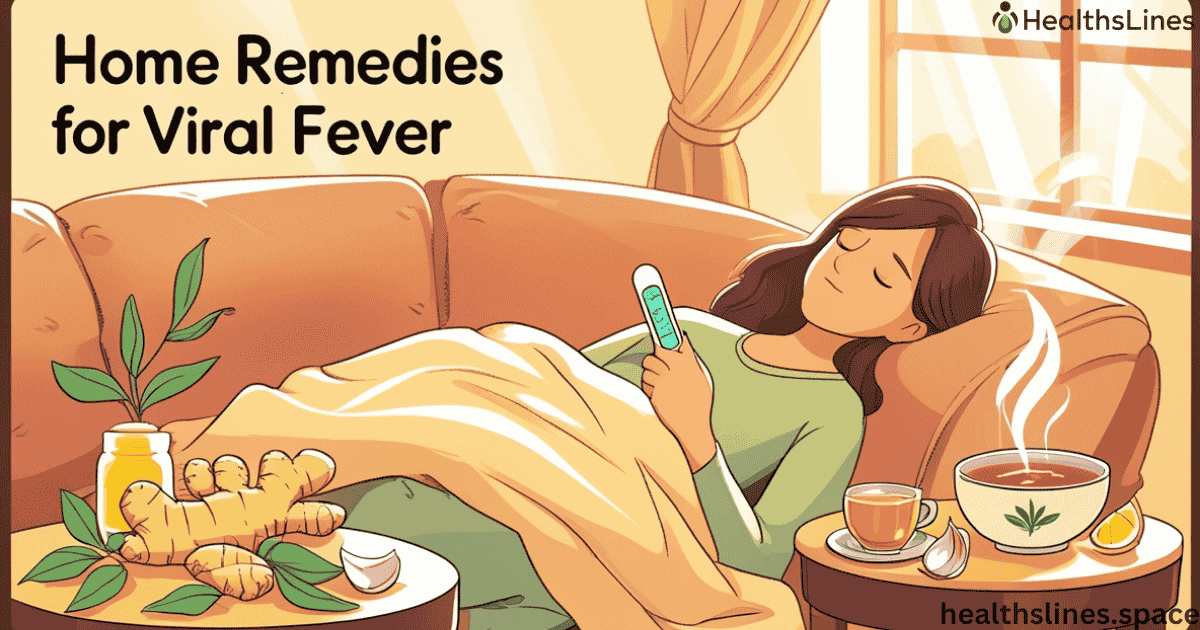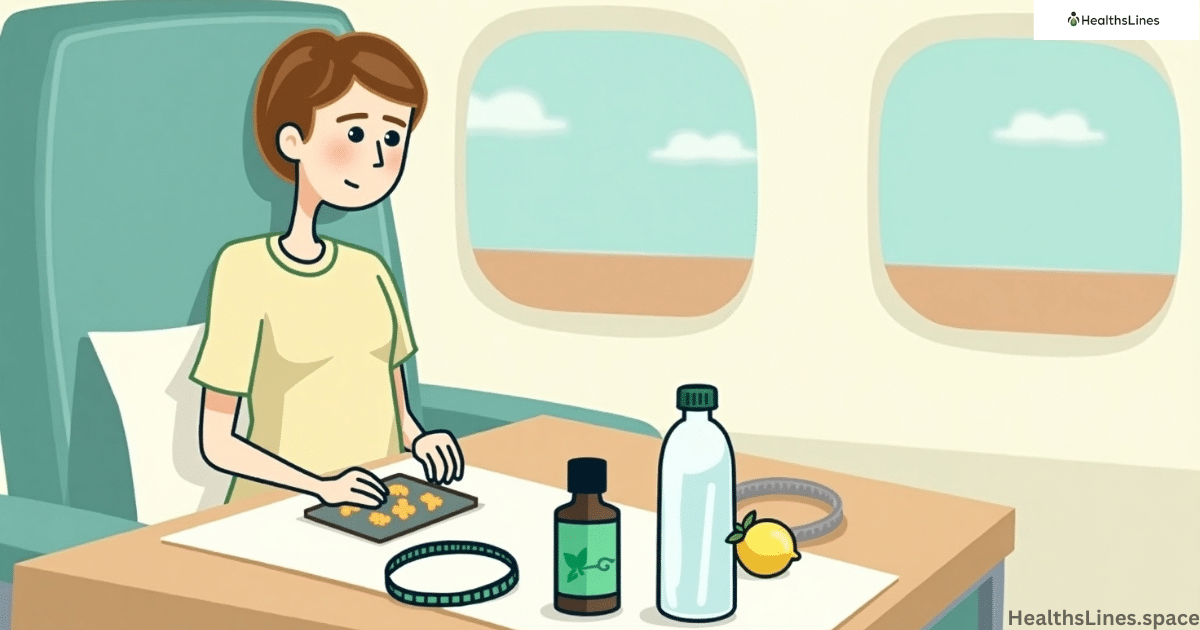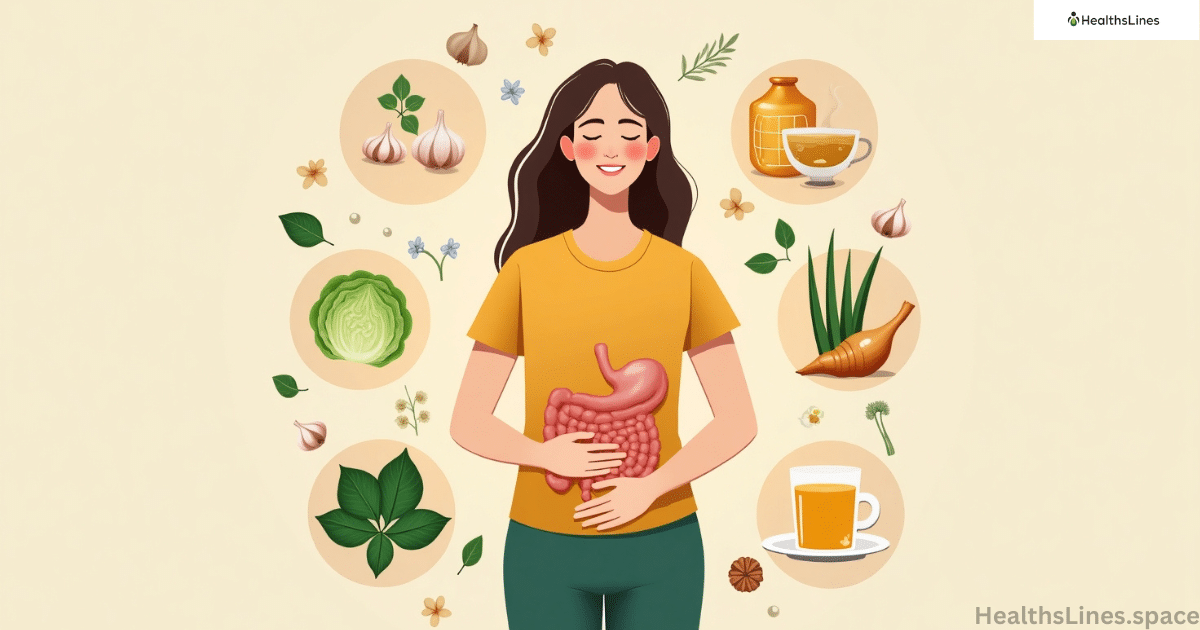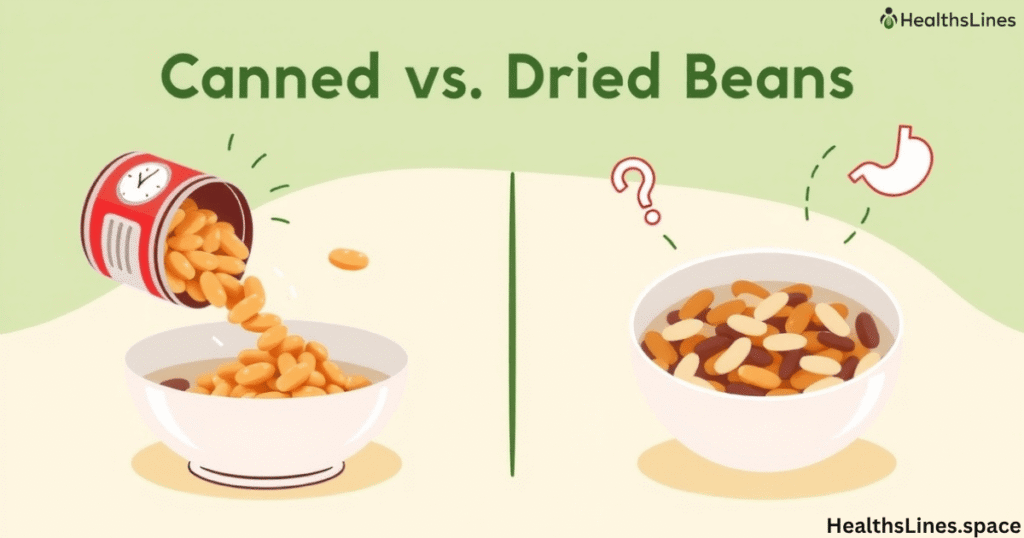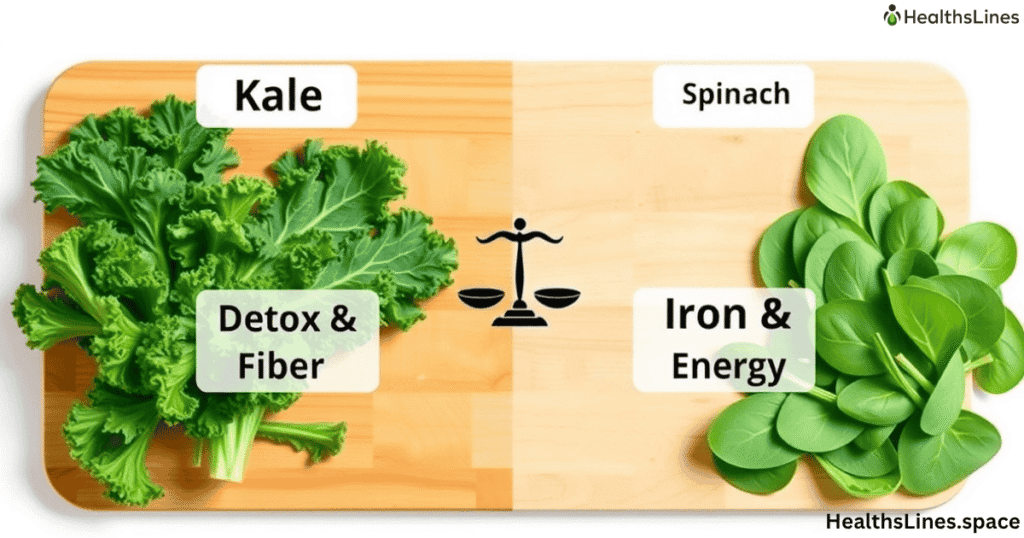Viral fever is something that affects almost everyone at some point. It can make your body feel weak, your head feel heavy, and your energy drop to zero. While a viral fever often goes away on its own, many people search for viral fever home remedies to feel better faster. Learning how to treat viral fever at home is important because most cases don’t require hospital visits.
A viral fever is caused by a viral infection, not bacteria. This means antibiotics will not work. You need to manage symptoms, support your immune system, and avoid further complications. With rest, the right food, and natural remedies for viral fever, you can heal safely at home.
When You Should NOT Treat Viral Fever at Home
Most viral fevers are mild, but sometimes they can get dangerous. You should never try viral fever treatment at home if the fever lasts more than three days or if the temperature goes over 103°F (39.4°C). Seek help if there are other symptoms like difficulty breathing, chest pain, continuous vomiting, confusion, or seizures. Children under the age of three months with any fever must be taken to the doctor immediately.
Their body may not fight the virus well on its own. If symptoms worsen or the fever keeps coming back, it’s best to see a doctor right away.
First Steps to Handle Fever at Home
When someone develops a viral fever, the first few hours are important. You must act quickly, but calmly. Begin by checking the person’s temperature using a clean digital thermometer. Anything above 100.4°F (38°C) is considered a fever. Make sure the person stays indoors, rests, and avoids doing anything physically demanding. If possible, let them lie down in a quiet, airy room with low light and good ventilation. A peaceful setting reduces stress on the body and helps it begin the healing process faster.
It’s also essential to maintain hygiene in the room. Change bed linens often, keep drinking water covered, and clean frequently touched surfaces. If there are signs of a contagious viral infection, such as coughing or sneezing, avoid close contact. Provide tissues and make sure they wash their hands frequently. These basic steps form the core of viral infection care at home.
At this stage, do not jump into medicines unless the fever is too high or the patient is very uncomfortable. Allow the body a chance to fight naturally Fever Home Remedies. Early home care can prevent complications later. These small efforts in the beginning can make a big difference in how quickly someone recovers from a viral fever.
Stay Hydrated the Right Way
Fever causes sweating and fluid loss. This can lead to dehydration during fever, which makes the illness worse. Drinking fluids is the best way to stay strong and support your recovery. You should drink water regularly, even if you don’t feel thirsty.
Fluids like ORS for fever, coconut water, and clear soups give back lost minerals and prevent weakness. Avoid tea, coffee, energy drinks, and soda. These can increase dehydration. Drinking warm fluids also soothes the throat and helps reduce body pain.
| Best Fluids for Fever | Fluids to Avoid |
| Water | Soda |
| ORS | Energy Drinks |
| Coconut Water | Coffee |
| Herbal Teas | Sugary Juices |
| Clear Soup | Alcohol |
Get Ample Rest and Sleep

Your body fights infection best when you’re asleep. During sleep, your immune system becomes more active. You should stay in bed as much as possible and avoid screens. Mobile phones, TVs, and laptops disturb sleep and slow down healing.
Good rest helps the body reset and reduces body temperature naturally. Rest and recovery from viral infection go hand in hand. Try to nap during the day if you’re too tired. Let your body do its job without interruption.
Cooling Techniques for Viral Fever
High body temperature feels uncomfortable and dangerous. One of the safest fever reducing remedies at home is the lukewarm sponge bath for fever. Dip a towel in lukewarm water and place it on the forehead, armpits, or neck. This helps draw out excess heat.
Don’t use ice or very cold water, as this can shock the body. Also, wear light cotton clothes and keep the room well-ventilated. A fan on low speed or natural airflow is better than direct air conditioning. These are simple and safe cooling techniques for fever.
Safe Over-the-Counter Medications for Fever
Sometimes, rest and fluids are not enough. You may need medicine. Paracetamol dosage for fever is one of the most common treatments. Adults can take 500mg to 1000mg every 6-8 hours, but never more than 4000mg in a day. It lowers temperature and reduces pain.
Another option is ibuprofen for viral fever. It helps with body aches and swelling. However, it should not be taken on an empty stomach. People with stomach problems or asthma should avoid it. These are safe medications for fever when taken properly.
| Medicine | Dose for Adults | Notes |
| Paracetamol | 500-1000mg | Every 6-8 hours, max 4g per day |
| Ibuprofen | 200-400mg | With food, avoid overuse |
Natural Herbal Remedies for Viral Fever
Using natural remedies for viral fever is one of the safest and most effective ways to support the body’s healing process. Herbal treatments have been used for centuries in many cultures, and some of them are now backed by science. These remedies help reduce fever, ease discomfort, and boost immunity without harsh side effects. The goal is not to replace medicine but to assist the body in fighting the viral infection naturally.
One of the most trusted options is Tulsi tea for fever. Tulsi, or holy basil, is rich in antioxidants and has strong antiviral properties. Boil a few fresh leaves in water, let it steep, and sip warm. It clears the airways, soothes the throat, and supports the immune system. Another excellent remedy is ginger water for fever relief. Ginger helps reduce inflammation and boosts circulation. Just crush a few slices, boil them in water, and drink slowly throughout the day. For nighttime relief, turmeric milk benefits for illness are impressive. It fights infection, eases body aches, and improves sleep Fever Home Remedies.
These herbal treatments for viral fever are gentle and safe for most people, but those with allergies or chronic illnesses should consult a doctor before trying them. Always prepare fresh and avoid packed herbal drinks.
What to Eat During Viral Fever
Food gives your body the strength it needs to recover. Choosing the right foods is key for fever symptoms and recovery. Eat warm, soft meals like khichdi, plain rice, boiled potatoes, and toast. Bananas, apples, and stewed fruits are easy to digest and provide energy.
Avoid fried, oily, spicy, or dairy-heavy dishes. These are hard to digest and can upset the stomach. Eating light meals several times a day works better than forcing large meals. These are the most important foods to eat during viral fever.
| Best Foods | Foods to Avoid |
| Rice, khichdi | Fried snacks |
| Steamed vegetables | Cheese-heavy dishes |
| Boiled eggs | Spicy curries |
| Apples, bananas | Cream-based sauces |
| Clear chicken soup | Sugary desserts |
When Prescription Antivirals Are Needed
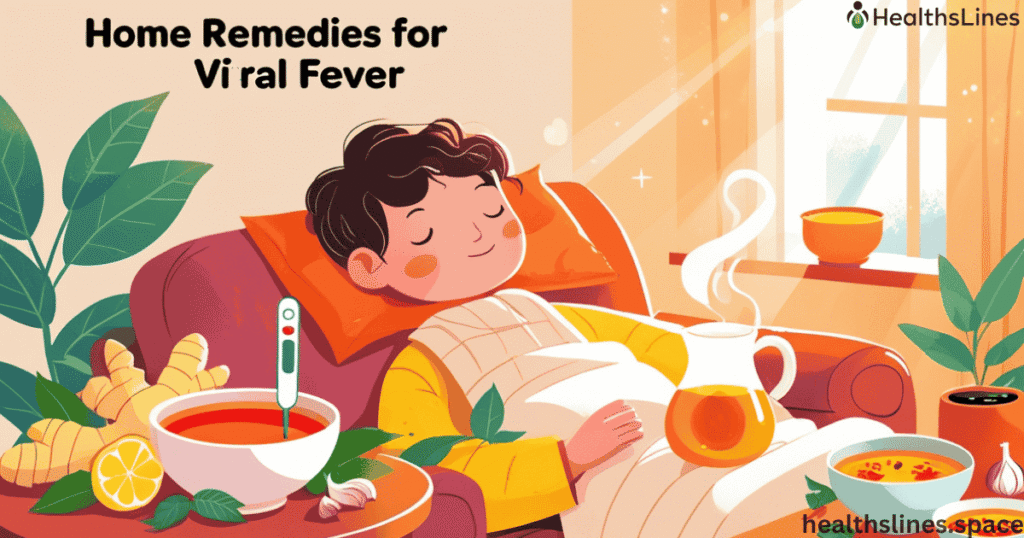
In some cases, the doctor may prescribe antiviral medicine. This happens when the fever is part of a serious condition like dengue, flu, or COVID-19. Doctors check your symptoms, age, and health before deciding if antivirals are needed.
Don’t use leftover antibiotics or antiviral drugs on your own. These don’t help with regular viral fevers and can cause harm. Over-the-counter medicine for viral fever works for basic symptoms only. If your doctor gives you a prescription, follow it fully.
Special Home Care for Children
Children need extra attention during fever. Their bodies can lose water fast and develop complications quicker. Use safe children’s fever home care methods like lukewarm baths and soft meals. Never give aspirin to children.
Older adults must be watched for signs of dehydration, confusion, or chest pain. Their immune system may not show strong fever, so other symptoms must be noted.
Myths About Fever Treatment
Many people still follow old beliefs. One big myth is that you should sweat out the fever. This can make dehydration worse. Another myth is avoiding showers. In fact, a warm bath helps relax the body and lower temperature.
Some think cold drinks will make fever worse. If they are not icy and the throat feels fine, moderate cool drinks are not harmful. Learning the truth behind myths about fever treatment helps in better recovery.
Frequently Asked Questions About Viral Fever
A common question is: Does a wet towel help fever? Yes, if it’s soaked in lukewarm water, it brings the fever down safely. What should you eat during a fever? Light, nutritious food that’s easy to digest is best.
People often ask if fever spreads without symptoms. Yes, some viral infections are contagious even before symptoms show. That’s why early rest and isolation are important parts of flu-like symptoms home care.
Final Thoughts
Fever is the body’s way of fighting off viruses. In most cases, it goes away within a few days. With the right care, you can manage symptoms and recover at home. Use natural fever treatment, stay hydrated, eat well, and rest deeply.
But never ignore warning signs. If fever doesn’t drop, gets too high, or brings strange symptoms, see a doctor. Learning how to treat viral fever at home can save you from discomfort and stop it from spreading.
